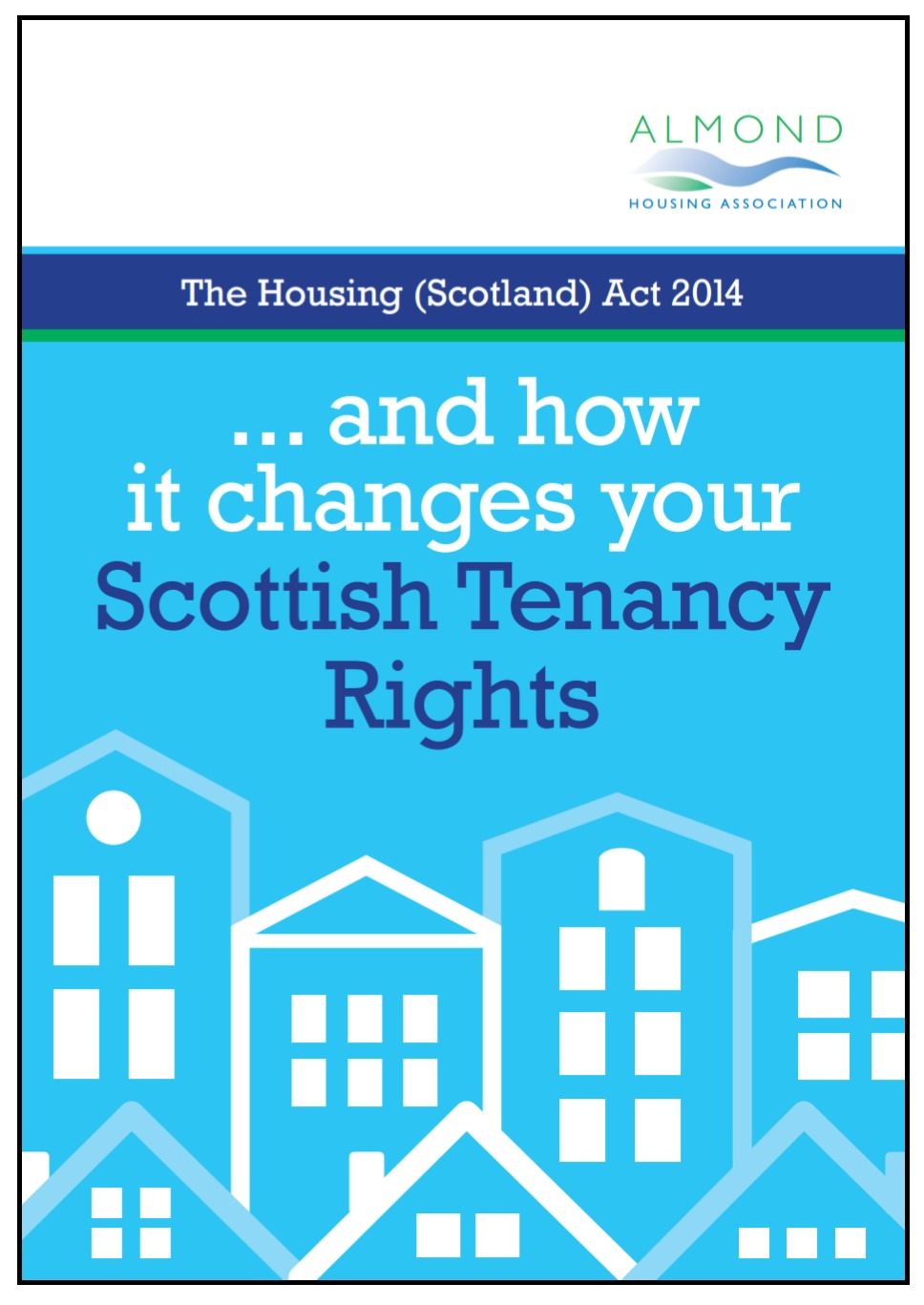The Housing (Scotland) Act 2014
...and how it affects your Scottish Tenancy Rights
A new law is coming into force which will affect your rights, by bringing about changes to the Scottish Secure Tenancy Agreement (SSTA).
The Housing (Scotland) Act 2014 is making some changes which will come into force on 1 May 2019, while others come into effect on 1 November 2019.
Look out for our leaflet, explaining the changes and how they will affect Almond tenants. If you don't receive yours through your letterbox in November 2018, you can download a full copy here, or pop into our office to pick one up.
Or for a full copy of the Scottish Government summary, which outlines the new law, see here or pop into our reception at 44 Etive Walk.
But this explains in simple terms what the Act will mean to Almond customers…
Changes to your household
To protect your tenancy rights, you must advise us of changes to your household.
This includes anyone who has already moved in or out of your home – or will in the future.
If we are unaware of them, you must inform us. Write to:
Almond Housing Association Ltd, New Almond House, 44 Etive Walk, Craigshill, Livingston EH54 5AB.
Or email us at enquiries@almondha.org.uk
From 1 May 2019...
Adapted Properties
If you live in an adapted home where you do not need the adaptations – and Almond requires the property for someone who does – we can
apply to a sheriff to end your tenancy.
We must give notice, and offer suitable alternative accommodation.
You have the right to challenge this, if you feel we acted unreasonably, or the alternative property was unsuitable.
Antisocial Behaviour
We can transfer you to a Short Scottish Secure Tenancy, for any antisocial behaviour. This has fewer rights, and less protection from eviction.
It can be done when a tenant, or someone living with them, has acted in an antisocial manner, or harassed another person, in or around their property within 3 years before notice is served.
If no ASBO has been granted by the court, we must issue a notice detailing the behaviour which led to our decision, and the tenant’s right of appeal.
Eviction
We can end a tenancy if a tenant, joint tenant, lodger, or visitor to the property, is convicted of:
• Using it or allowing it to be used for illegal/immoral purposes
• An imprisonable offence, committed in the property, or locality
We would serve notice of our intention to seek recovery of the property. This would happen within 12 months of the conviction, or of when the appeal process ended (a tenant may challenge a landlord’s decision).
From 1 November 2019...
The time period will change for when you are allowed to:
• Sublet your property
• Add a joint tenant
• Pass your tenancy to someone else (Assignation)
• Take over a tenancy after death (Succession)
Our consent as landlord has always been required for the above.
But the tenant and the person receiving the tenancy will now have to have been resident at the property for at least 12 months before any
of these actions can occur (previously it was 6 months).
Time spent living in the property will not count if the landlord has not been notifed you were there.
We can refuse permission to assign a tenancy, for reasons listed under Section 32 of the Housing (Scotland) Act 2001.
But the new 2014 Act provides two new reasons why we can turn down an application to pass your tenancy to someone else:
• Where the person being passed the tenancy would not get priority under our Allocations Policy
• Where the home would be under occupied
CONTACT
If you have any questions, do not hesitate to get in touch with us. We're here to help!
Contact your Housing Officer, or call 01506 439 291, to discuss any aspect of these changes in more detail.
SEE ALSO
Download the full version of the new Housing (Scotland) Act here
Download our leaflet, explaining what the Act means to Almond tenants, here
